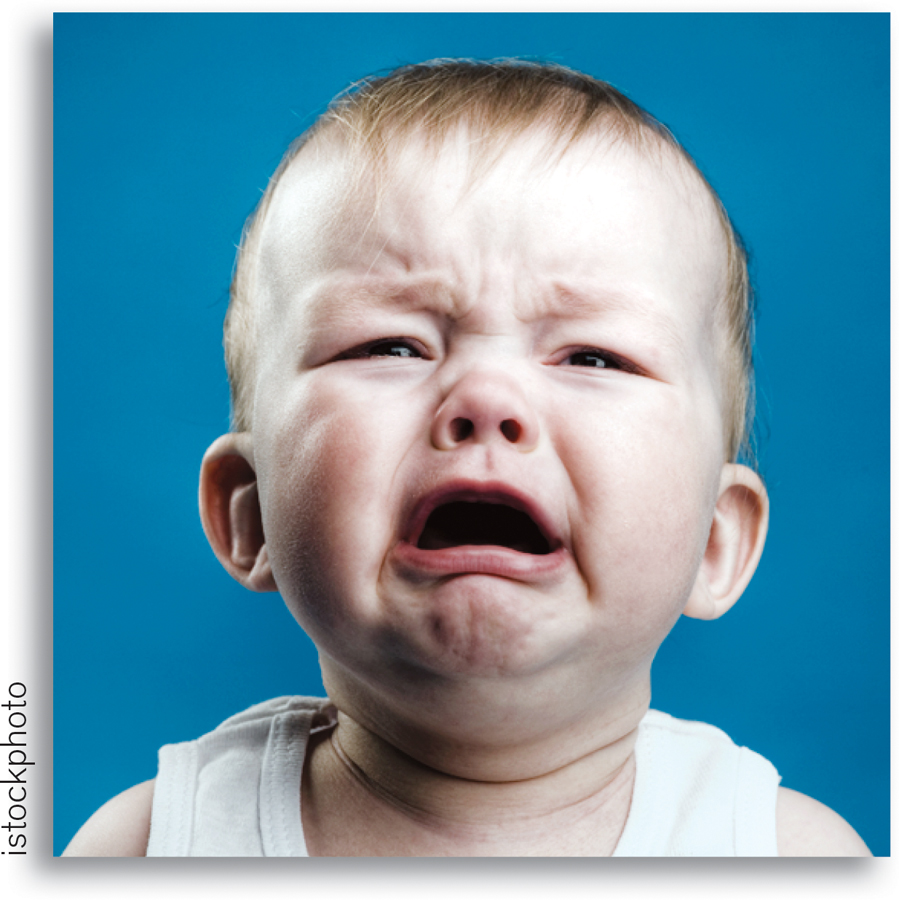Principle #12: Government Policies Can Change Spending
Overall spending sometimes gets out of line with the economy’s productive capacity. But can anything be done about that? Yes—
Government policies can change spending.
In fact, government policies can dramatically affect spending.
For one thing, the government itself does a lot of spending on everything from military equipment to education—
Modern governments deploy these macroeconomic policy tools in an effort to manage overall spending in the economy, trying to steer it between the perils of recession and inflation. These efforts aren’t always successful—
!worldview! ECONOMICS in Action: Adventures in Babysitting
Adventures in Babysitting

The website, myarmyonesource.com, which offers advice to army families, suggests that parents join a babysitting cooperative—
As myarmyonesource.com explained, “Instead of money, most co-
A famous article titled “Monetary Theory and the Great Capitol Hill Babysitting Co-
In this case, because there weren’t that many tickets out there to begin with, most parents were anxious to add to their reserves by babysitting but reluctant to run them down by going out. But one parent’s decision to go out was another’s chance to babysit, so it became difficult to earn tickets. Knowing this, parents became even more reluctant to use their reserves except on special occasions.
In short, the co-
An economy can also suffer from too little spending: when not enough people were willing to go out, everyone was frustrated at the lack of babysitting opportunities.
And what about government policies to change spending? Actually, the Capitol Hill co-
Quick Review
In a market economy, one person’s spending is another person’s income. As a result, changes in spending behavior have repercussions that spread through the economy.
Overall spending sometimes gets out of line with the economy’s capacity to produce goods and services. When spending is too low, the result is a recession. When spending is too high, it causes inflation.
Modern governments use macroeconomic policy tools to affect the overall level of spending in an effort to steer the economy between recession and inflation.
1-3
Question 1.5
Explain how each of the following examples illustrates one of the three principles of economy-
wide interactions. The White House urged Congress to pass a package of temporary spending increases and tax cuts in early 2009, a time when employment was plunging and unemployment soaring.
This illustrates the principle that government policies can change spending. The tax cut would increase people’s after-tax incomes, leading to higher consumer spending.Oil companies are investing heavily in projects that will extract oil from the “oil sands” of Canada. In Edmonton, Alberta, near the projects, restaurants and other consumer businesses are booming.
This illustrates the principle that one person’s spending is another person’s income. As oil companies increase their spending on labor by hiring more workers, or pay existing workers higher wages, those workers’ incomes rise. In turn, these workers increase their consumer spending, which becomes income to restaurants and other consumer businesses.In the mid-
2000s, Spain, which was experiencing a big housing boom, also had the highest inflation rate in Europe. This illustrates the principle that overall spending sometimes gets out of line with the economy’s productive capacity. In this case, spending on housing was too high relative to the economy’s capacity to create new housing. This first led to a rise in house prices, and then—as a result—to a rise in overall prices, or inflation.
Solutions appear at back of book.
How Priceline.com Revolutionized the Travel Industry
In 2001 and 2002, the travel industry was in deep trouble. After the terrorist attacks of September 11, 2001, many people simply stopped flying. As the economy went into a deep slump, airplanes sat empty on the tarmac and the airlines lost billions of dollars. When several major airlines spiraled toward bankruptcy, Congress passed a $15 billion aid package that was critical in stabilizing the airline industry.
This was also a particularly difficult time for Priceline.com, the online travel service. Just four years after its founding, Priceline. com was in danger of going under. The change in the company’s fortunes had been dramatic.
In 1999, one year after Priceline.com was formed, investors were so impressed by its potential for revolutionizing the travel industry that they valued the company at $9 billion dollars. But by 2002 investors had taken a decidedly dimmer view of the company, reducing its valuation by 95% to only $425 million.
To make matters worse, Priceline.com was losing several million dollars a year. Yet the company managed to survive and thrive; in 2014 it was valued by investors at over $63 billion.
So exactly how did Priceline.com bring such dramatic change to the travel industry? And what has allowed it to survive and prosper as a company in the face of dire economic conditions?
Priceline.com’s success lies in its ability to spot exploitable opportunities for itself and its customers. The company understood that when a plane departs with empty seats or a hotel has empty beds, it bears a cost—
Customers specify the price they are willing to pay for a given trip or hotel location, and then Priceline.com presents them with a list of options from airlines or hotels that are willing to accept that price, with the price typically declining as the date of the trip nears.

By bringing airlines and hotels with unsold capacity together with travelers who are willing to sacrifice some of their preferences for a lower price, Priceline.com made everyone better off—
Priceline.com was also quick on its feet when it saw its market challenged by newcomers Expedia and Orbitz. In response, it aggressively moved more of its business toward hotel bookings and into Europe, where the online travel industry was still quite small. Its network was particularly valuable in the European hotel market, with many more small hotels compared to the U.S. market, which is dominated by nationwide chains. The efforts paid off, and by 2003 Priceline. com had turned its first profit.
Priceline.com now operates within a network of more than 295,000 hotels in over 190 countries. As of 2013, its revenues had grown well over 20% in each of the previous five years, even growing 34% during the 2008 recession. Clearly, the travel industry will never be the same again.
QUESTION FOR THOUGHT
Question 1.6
Explain how each of the twelve principles of economics is illustrated in this case study.
Explain how each of the twelve principles of economics is illustrated in this case study.